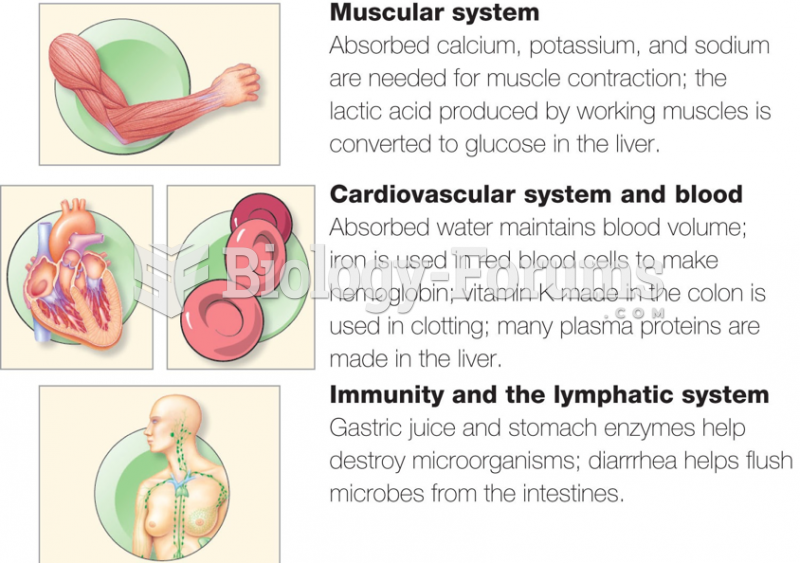|
|
|
Acetaminophen (Tylenol) in overdose can seriously damage the liver. It should never be taken by people who use alcohol heavily; it can result in severe liver damage and even a condition requiring a liver transplant.
More than 150,000 Americans killed by cardiovascular disease are younger than the age of 65 years.
In inpatient settings, adverse drug events account for an estimated one in three of all hospital adverse events. They affect approximately 2 million hospital stays every year, and prolong hospital stays by between one and five days.
Though newer “smart” infusion pumps are increasingly becoming more sophisticated, they cannot prevent all programming and administration errors. Health care professionals that use smart infusion pumps must still practice the rights of medication administration and have other professionals double-check all high-risk infusions.
The tallest man ever known was Robert Wadlow, an American, who reached the height of 8 feet 11 inches. He died at age 26 years from an infection caused by the immense weight of his body (491 pounds) and the stress on his leg bones and muscles.
 Evaluation of a child for cystic fibrosis with a sweat chloride test. Sweat is being collected under
Evaluation of a child for cystic fibrosis with a sweat chloride test. Sweat is being collected under
 Some playgrounds near streets with heavy traffic may still have high levels of lead from gasoline ...
Some playgrounds near streets with heavy traffic may still have high levels of lead from gasoline ...





